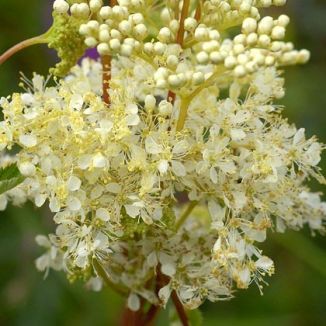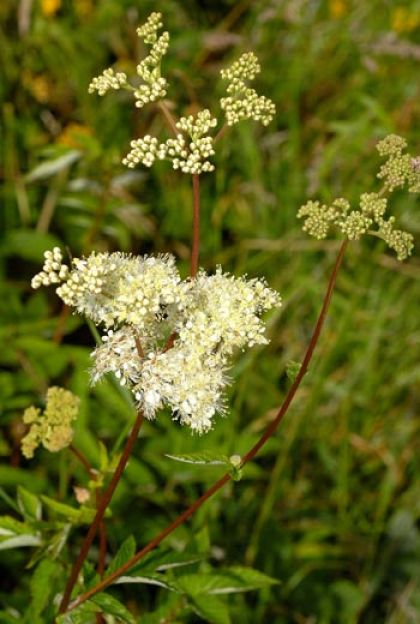Creamy, perennial of damp waysides, meadows, marshes and woods, this tall, hairless plant flowers throughout Ireland from June to September. With a heavy fragrance, it carries its numerous 5-6 petalled flowers in dense, clusters on furrowed, reddish stems. Its dark green leaves are long-stalked and pinnate with pale undersides. The flower heads are frequently visited by bees attracted by the heavy scent which can be so evocative of summer days in the countryside. In spite of this fragrance, the flowers produce no nectar. Insects, however, don't realise this but their visits serve to fertilise the plants which are heavy with pollen. A peculiarity of this flower is that the scent of the leaves is quite different from that of the flowers, the leaves having a heavy almond-like aroma whereas the flowers have a strong sweet smell. This is a native plant belonging to the family Rosaceae.
I first identified this plant in Derrynane, Co Kerry in 1976 and photographed it in Vicarstown, Co Kildare beside the Grand Canal in 2002.
If you are satisfied you have correctly identified this plant, please submit your sighting to the National Biodiversity Data Centre




